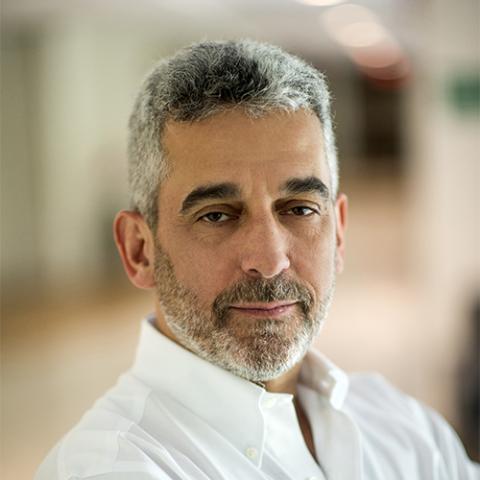Marrakesh
It's been just a few days since Donald Trump said he'd close America's doors to Muslims, and here in Marrakesh so far not a single Moroccan has raised the issue with me.
"Most Moroccans realize it's an internal American issue right now," says a Moroccan friend at a café. "If Trump was president, then it's a different matter. When Bush decided to invade Iraq, we had plenty of protests."
Generally, however, many Moroccans seem to think they should be primarily concerned with their own affairs, their own politics, as well as their own history. "That's urgent right now," says Rabie al-Kati, a Moroccan movie star. "We're erasing our own history and we need to preserve it. Sure, for others to understand who we are, but mostly for ourselves, Muslims, Arabs, Moroccans."
We're sitting in a hotel lobby talking about his most recent movie. "It's a love story, and a detective story," he says. He plays the lead, the detective. Guessing by the number of people who come by for autographs and pictures, and the wide smiles he collects from women staring from afar, I gather that he's one of Morocco's matinee idols. We met the night before at a reception for the Marrakesh Film Festival's jury, headed by Francis Ford Coppola. Kati was wearing a white dinner jacket, like he was dressed for Coppola's version of New Year's Eve in Havana, 1959.
The kinds of picture Kati really wants to do, he explains, are historical dramas, movies about important figures and moments in the history of the Middle East and North Africa. The problem, he explains, is that those historical movies on the scale of Ben Hur and The Ten Commandments, or the 1976 Muslim-world equivalent, The Message, a movie about Muhammad, the prophet of Islam, are very expensive. And it's not clear that where there's enough money to pay for such pictures, like the Arab Gulf states, there's also enough will to make them.
Still, says Kati, "I'd love to do a movie about Ibn Rushd." The Andalusian polymath who combined Aristotle and Islamic philosophy died here in Marrakesh in 1198. Known in the West as Averroes, his ideas influenced both Maimonides and Aquinas, and put him at odds with more conservative Islamic legal scholars.
"Ibn Khaldun, too," says Kati, referring to the Tunisian-born author of the Muqaddima, or the Prolegomena, a book of universal history often referred to as the first work of sociology. Perhaps Ibn Khaldun's most lasting insight involved the idea of asabiyya, or group solidarity, explaining the rise and fall of nations and peoples. Taking Middle Eastern societies as his basis, Ibn Khaldun noted that asabiyya is strongest when a group or society is in its earliest stages, especially its nomadic phase. With its success, the group becomes more settled, more sedentary, and accustomed to maintaining its relative luxury, which makes it susceptible to groups that have retained its strong sense of asabiyya.
What about Ibn Batuta, the 14-century Moroccan explorer, I ask Kati. "A dream role," he says. "I'd love to play him. All his travels and adventures around the world—wow! He went to Africa, the Middle East, China."
Kati's been around much of the world and says one of his favorite places is Iraq. "It's amazing," he says. "You have Islamic and Arab history, and also history that predates it by centuries. The first epic poem was written in Iraq, Gilgamesh."
What makes the historical movies he wants to do important, says Kati, is that the history of the region is right now being erased. "You have ISIS," says Kati, "and what are they doing? They destroyed antiquities in Palmyra. It's the same thing the Taliban did with the Buddhist statues at Bamiyan."
In other words, if one trend is to obliterate the region's history, the necessary counterpoint is to preserve that history, and remember it. Indeed, the one movie of Kati's I've seen to date concerns a relatively recent moment in Moroccan history, and not the easiest chapter to tell. "Feen Meshi Ya Moishe?" is about the flight of Morocco's Jews to Israel in the 1960s. In it, Kati plays Hassan, a young man who looks up to an older neighbor who wakes up one day to find he's the last Jew living in town. Even as the film touched on sensitive subjects for an Arab state, it was well received when it was made in 2009, and packed the house when I saw it shown this week as part of the festival.
The success of that movie helps underscore something I tried to point at in my previous dispatch from here in Marrakesh. The issue that is troubling so much of the world at present is not about a breakdown in communication between the West and Islam. There's also an internal conversation. As Kati argues, Muslims, Arabs, Moroccans need to get a better sense of where they've been to know where they're going. Something similar probably needs to hold for the other side of the equation, too, which I'll elaborate in a future dispatch.















